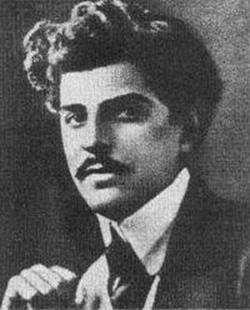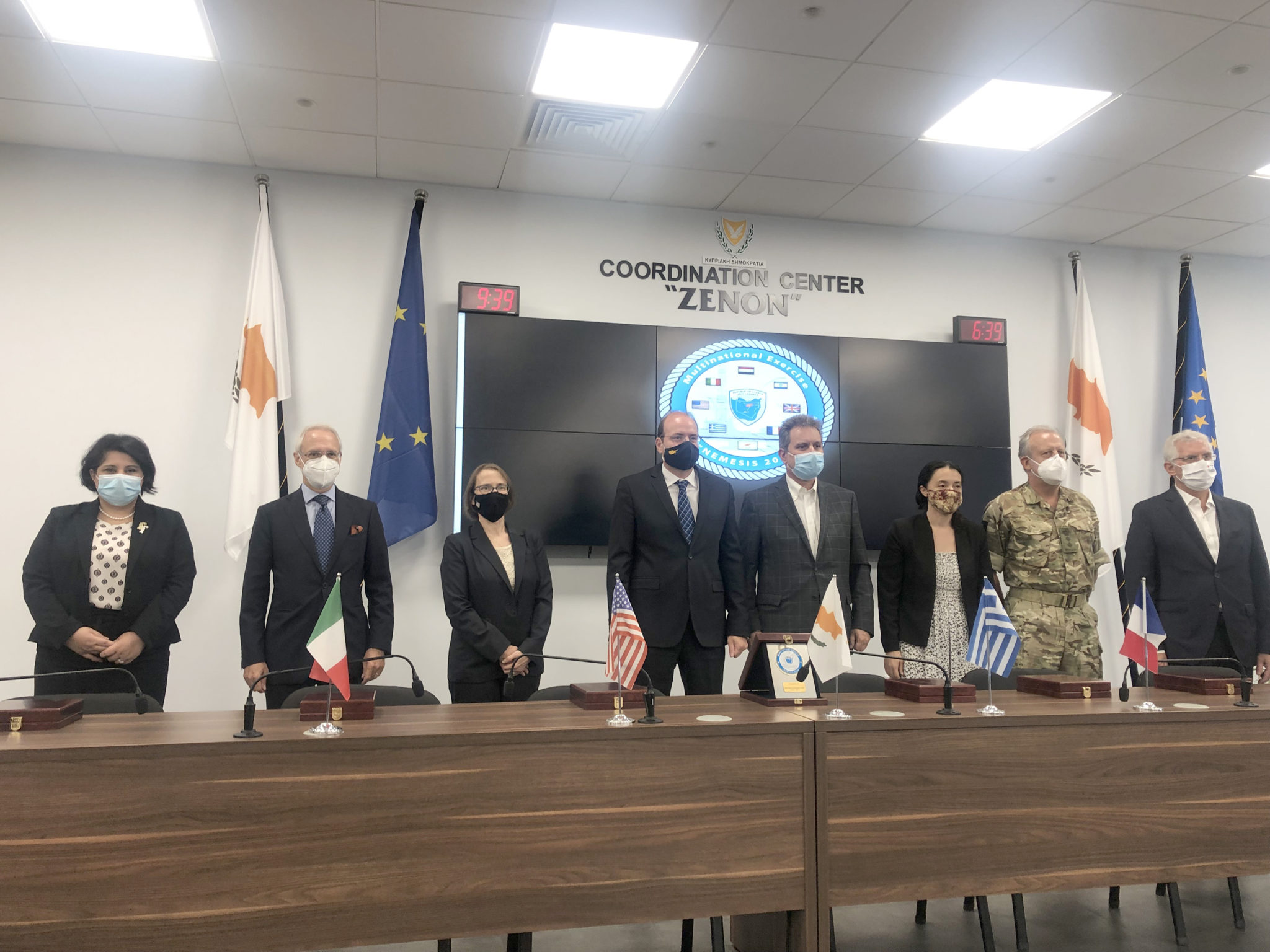
On 4 February 2021, a new defamation trial took place in front of the 17th Chamber of the Tribunal of Paris involving plaintiff Maxime Gauin, scholar in residence at AVİM, against Jean-Marc “Ara” Toranian, former chief of the “political” branch of the Armenian Secret Army for the Liberation of Armenia (ASALA) in France and Laurent Leylekian, former European leader of the Armenian Revolutionary Federation (ARF) from 2001 to 2009 and editor of the ARF monthly France-Arménie until 2011.
The hearing was disastrous for the Armenian nationalists. The first part was devoted to Maxime Gauin’s application to the Constitutional Council of France against the bill “recognizing the Armenian genocide,” as this bill serves as basis for the sued persons to ask for their acquittal. Gauin’s lawyer vigorously explained why this is relevant for the trial and why the bill is unconstitutional. The bill, being merely a statement and not creating any explicit right or obligation, necessarily has an ambiguous normative scope, which is something the Constitutional Council has systematically banned since 2004. Contrary to the hopes openly expressed by the defense, the remarkably long (20 minutes) interruption of the hearing to debate this application was not followed by the announcement of the rejection of the application; the decision would be announced on 25 March.
The debate on the merits that took place until 09:30 pm was another disaster for the defense. The cross-examination of the two defense witnesses (Yves Ternon, a retired surgeon who has never worked in any archive on the Armenian issue and confessed he never read one line of Gauin’s publications or doctoral dissertation; Vincent Duclert, a specialist of the Dreyfus Affair who has never set foot in an archive about the Ottoman Armenians) by Gauin’s lawyer was more than embarrassing for them. Confronted with explaining an openly racist article he had published in 2009 and republished in 2012[1], Leylekian denied it was racist, against all likelihood.
The questions of the presiding judge to Gauin proved her unprejudiced stance on the Armenian and Turkish issues. In fact, the three judges were targeted by hateful and insulting comments from Toranian’s supporters on Facebook for having remained impartial.[2] The plaintiff also systematically answered in detail the defense’s questions, justifying for example his accusations against the late Patrick Devedjian with direct evidence of Devedjian’s unconditional support for terrorism, of Devedjian’s knowledge in advance of the Orly Airport bombing of 1983 and of Devedjian’s use of a threatening crowd to intimidate the court during the Kildnjian trial of 1982.
It is for these reasons that the two judgments of 17th Chamber of the Tribunal of Paris delivered on 25 March are impossible to rationally explain (and were appealed the next day). Indeed, the bill “recognizing the Armenian genocide” has been admitted as being relevant for the case, but the application was rejected by invoking a case law that ceased to exist more than 15 years ago. Indeed, from 1982 to 2002, the Constitutional Council of France considered the article of laws that do not create rights or obligations to be nonexistent in practice and not even deserving to be banned. In 2003,[3] the Constitutional Council began to ban ambiguous normative scope. In 2004,[4] it banned another article of law for the same reason, adding this time that a law must have a normative scope. Eventually, in 2005,[5] it banned for the first time an article of law entirely deprived of normative scope. Such banning by the Constitutional Council is now systematic, as exemplified by the decisions of 2016,[6] 2017,[7] and 2018.[8] The decisions of 2004, 2005, and 2018 explicitly cited in the application to the Constitutional Council and these references were orally repeated by Gauin’s lawyer.
The justification of the acquittal concerning the “polemic” on the events of 1915-16, a polemic that has involved the use defamatory expressions “denialist” and “henchman of the Turkish power” against Gauin, is also against all the case law concerning such terms, for example the conviction of the same Leylekian, by the Tribunal of Paris in 2013 then by the appeal court in 2014.[9]
In such conditions, it is impossible to refrain from recalling the threatening crowd openly used against the court of Aix-en-Provence in 1982,[10] the explicit call by Toranian in 1986 to commit mass terrorist attacks in Paris in reprisal to the conviction of former ASALA leader Monte Melkonian,[11] the threats by former ASALA terrorist Gilbert Minassian (sentenced in absentia to life-term imprisonment, hidden in Yugoslavia at that time) to devastate Paris with bombs in 1989 if Melkonian was extradited to the United States. In fact, Melkonian was not extradited to the US. The scene is not much different in the US, as we recently witnessed that radical US citizens of Armenian origin have demonstrated that they are able to lobby and exert pressure to have the life sentence of notorious racist terrorist Hampig Sassounian, who murdered the Turkish Consul General in Los Angeles in 1982, pardoned despite all the case law of the US and state of California regarding such criminals.
[1] Laurent Leylekian, “Mise au point à propos de Turquie-News”, Eurotopie.leylekian.eu, March 26, 2012, http://eurotopie.leylekian.eu/2012/03/mise-au-point-propos-de-turquie-news.html
[2] The screenshots of the comments can be found here: “Les nationalistes arméniens n’aiment pas la justice française (et ne l’ont jamais aimée)”, Question-Armenienne.Blogspot.com, February 11, 2021, http://question-armenienne.blogspot.com/2021/02/les-nationalistes-armeniens-naiment-pas.html
[3] “Décision n° 2003-475 DC du 24 juillet 2003 - Loi portant réforme de l'élection des sénateurs”, Conseil Constitutionnel de la République Française, https://www.conseil-constitutionnel.fr/decision/2003/2003475DC.htm
[4] “Décision n° 2004-500 DC du 29 juillet 2004 - Loi organique relative à l'autonomie financière des collectivités territoriales”, Conseil Constitutionnel de la République Française, https://www.conseil-constitutionnel.fr/decision/2004/2004500DC.htm
[5] “Décision n° 2005-512 DC du 21 avril 2005 - Loi d'orientation et de programme pour l'avenir de l'école”, Conseil Constitutionnel de la République Française, https://www.conseil-constitutionnel.fr/decision/2005/2005512DC.htm
[6] “Décision n° 2016-741 DC du 8 décembre 2016 - Loi relative à la transparence, à la lutte contre la corruption et à la modernisation de la vie économique”, Conseil Constitutionnel de la République Française, https://www.conseil-constitutionnel.fr/decision/2016/2016741DC.htm
[7] “Décision n° 2016-745 DC du 26 janvier 2017 - Loi relative à l'égalité et à la citoyenneté”, Conseil Constitutionnel de la République Française, https://www.conseil-constitutionnel.fr/decision/2017/2016745DC.htm
[8] “Décision n° 2018-766 DC du 21 juin 2018 - Loi relative à l'élection des représentants au Parlement européen”, Conseil Constitutionnel de la République Française, https://www.conseil-constitutionnel.fr/decision/2018/2018766DC.htm
[9] “Oran Martz c. Laurent Leylekian - Arrêt du 16 janvier 2014”, Cour d’appel de Paris, https://fatsr.org/wp-content/uploads/2019/02/Cour-dappel-de-Paris-Oran-Martz-c.-Laurent-Leylekian-arr%C3%AAt-du-16-janvier-2014.pdf
[10] Haiastan, February 1982, p. 14.
[11] “Éditorial - Procès Melkonian: la droite ouvre les hostilités”, Hay Baykar, December 20, 1986, p. 3
© 2009-2025 Center for Eurasian Studies (AVİM) All Rights Reserved
No comments yet.
-
 CAN SREBRENICA GENOCIDE BE COMPARED TO THE EVENTS OF 1915 WITHIN THE SCOPE OF FREEDOM OF EXPRESSION?
CAN SREBRENICA GENOCIDE BE COMPARED TO THE EVENTS OF 1915 WITHIN THE SCOPE OF FREEDOM OF EXPRESSION?
AVİM 16.12.2019 -
 RUPEN SEVAG CHILINGIRIAN
RUPEN SEVAG CHILINGIRIAN
AVİM 09.03.2020 -
 NATIONAL SCHOOLS IN THE OTTOMAN EMPIRE AND THE RISE OF ARMENIAN INSURGENCY
NATIONAL SCHOOLS IN THE OTTOMAN EMPIRE AND THE RISE OF ARMENIAN INSURGENCY
AVİM 26.02.2025 -
 WATS AND THE TRIUMPH OF THE POLITICAL OVER THE SCIENTIFIC
WATS AND THE TRIUMPH OF THE POLITICAL OVER THE SCIENTIFIC
AVİM 08.09.2017 -
 GREEK INDEPENDENCE DAY AND THE PREVAILING DOUBLE STANDARD OF THE WEST
GREEK INDEPENDENCE DAY AND THE PREVAILING DOUBLE STANDARD OF THE WEST
AVİM 16.04.2025
-
 ISRAEL BOMBS SYRIAN POSTS OVER GOLAN ATTACK ON ITS TROOPS
ISRAEL BOMBS SYRIAN POSTS OVER GOLAN ATTACK ON ITS TROOPS
Hande Apakan 18.03.2014 -
ARMENIA AND THE ARMENIAN DIASPORA
Alev KILIÇ 08.10.2012 -
 NAVAL EXERCISE "OPERATION NEMESIS" IN THE EASTERN MEDITERRENIAN AND ITS CONNOTATIONS
NAVAL EXERCISE "OPERATION NEMESIS" IN THE EASTERN MEDITERRENIAN AND ITS CONNOTATIONS
AVİM 15.10.2020 -
 THE IMPACT OF THE RUSSIA-UKRAINE WAR ON CENTRAL ASIAN COUNTRIES
THE IMPACT OF THE RUSSIA-UKRAINE WAR ON CENTRAL ASIAN COUNTRIES
Gülperi GÜNGÖR 27.04.2022 -
FORMER ARMENIAN FOREIGN MINISTER V. OSKANIAN IS INCRIMINATED
Alev KILIÇ 03.10.2012
-
25.01.2016
THE ARMENIAN QUESTION - BASIC KNOWLEDGE AND DOCUMENTATION -
12.06.2024
THE TRUTH WILL OUT -
27.03.2023
RADİKAL ERMENİ UNSURLARCA GERÇEKLEŞTİRİLEN MEZALİMLER VE VANDALİZM -
17.03.2023
PATRIOTISM PERVERTED -
23.02.2023
MEN ARE LIKE THAT -
03.02.2023
BAKÜ-TİFLİS-CEYHAN BORU HATTININ YAŞANAN TARİHİ -
16.12.2022
INTERNATIONAL SCHOLARS ON THE EVENTS OF 1915 -
07.12.2022
FAKE PHOTOS AND THE ARMENIAN PROPAGANDA -
07.12.2022
ERMENİ PROPAGANDASI VE SAHTE RESİMLER -
01.01.2022
A Letter From Japan - Strategically Mum: The Silence of the Armenians -
01.01.2022
Japonya'dan Bir Mektup - Stratejik Suskunluk: Ermenilerin Sessizliği -
03.06.2020
Anastas Mikoyan: Confessions of an Armenian Bolshevik -
08.04.2020
Sovyet Sonrası Ukrayna’da Devlet, Toplum ve Siyaset - Değişen Dinamikler, Dönüşen Kimlikler -
12.06.2018
Ermeni Sorunuyla İlgili İngiliz Belgeleri (1912-1923) - British Documents on Armenian Question (1912-1923) -
02.12.2016
Turkish-Russian Academics: A Historical Study on the Caucasus -
01.07.2016
Gürcistan'daki Müslüman Topluluklar: Azınlık Hakları, Kimlik, Siyaset -
10.03.2016
Armenian Diaspora: Diaspora, State and the Imagination of the Republic of Armenia -
24.01.2016
ERMENİ SORUNU - TEMEL BİLGİ VE BELGELER (2. BASKI)
-
AVİM Conference Hall 24.01.2023
CONFERENCE TITLED “HUNGARY’S PERSPECTIVES ON THE TURKIC WORLD"









